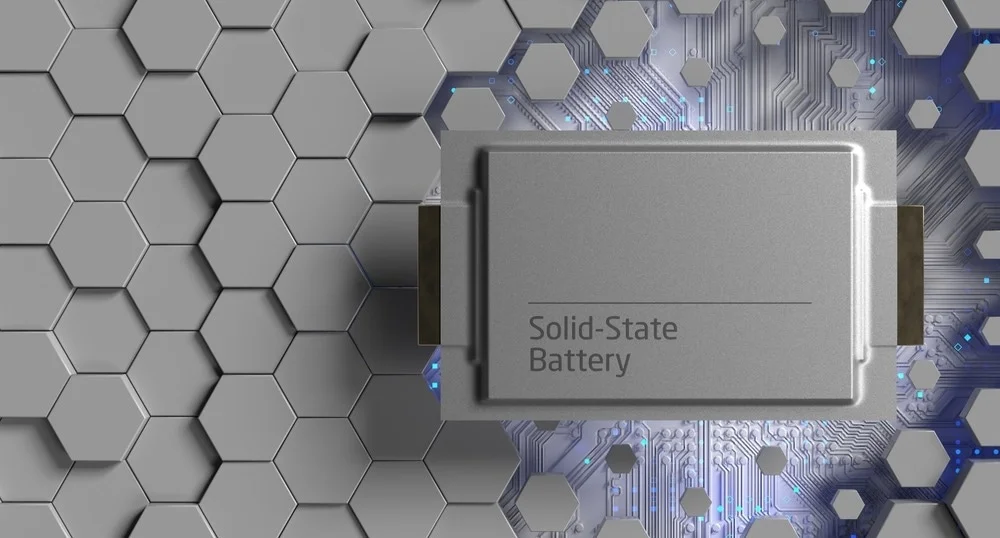In a world where electric vehicles (EVs) are gaining traction faster than ever, a groundbreaking development is emerging on the horizon: solid-state batteries. These innovative powerhouses are set to revolutionize the electric vehicle range, offering longer drives and shorter charging times. According to a recent report by Bloomberg Green, solid-state batteries could increase EV range by as much as 50% compared to current lithium-ion batteries. In this article, you’ll learn how solid-state batteries work, their advantages, and how they might just be the next big thing in sustainable transportation.
Understanding Solid-State Batteries
What Are Solid-State Batteries?
Solid-state batteries, unlike their liquid electrolyte-based counterparts, utilize a solid electrolyte. This seemingly simple change offers profound benefits, from increased energy density to improved safety. As reported by MIT Technology Review, the absence of liquid electrolytes reduces the risk of leaks and flammability, making these batteries not only more efficient but also safer.
How Do They Improve EV Range?
The key advantage of solid-state batteries lies in their energy density. According to InsideEVs, these batteries can store more energy in the same space, potentially increasing EV range by 50% or more. Here’s why:
- Higher Energy Storage: Solid-state batteries can pack more power per pound, which translates directly to longer distances per charge.
- Faster Charging: Solid electrolytes support faster ion movement, reducing charging times significantly.
- Extended Cycle Life: These batteries can endure more charge cycles, meaning they last longer over the vehicle’s lifespan.
Safety and Efficiency: A Dual Win
Safety is paramount in EV technology. The solid electrolyte in these batteries reduces the risk of fires, a concern with current lithium-ion models. TechCrunch highlights that solid-state technology could drastically minimize thermal runaway incidents, making EVs safer for consumers.
The Global Race for Solid-State Batteries
Who Are the Key Players?
The race for solid-state battery supremacy is heating up, with major EV brands and tech companies vying for leadership.
- Toyota: A pioneer in this field, Toyota plans to commercialize solid-state batteries by 2025, aiming to introduce them in hybrid vehicles first, as noted by Reuters Mobility.
- Volkswagen: Partnering with QuantumScape, VW is investing heavily in solid-state technology, with prototypes expected in the coming years.
- Ford and BMW: Both brands are collaborating with Solid Power, a leading solid-state battery manufacturer, to integrate this technology into future models.
Why the Urgency?
Climate change and the push for sustainable energy solutions have accelerated the demand for more efficient EVs. Solid-state batteries promise not only enhanced range but also a reduction in the environmental impact of battery production and disposal. As Electrek reports, transitioning to solid-state could significantly lower the carbon footprint of battery manufacturing.
Practical Considerations for Consumers
Where to Charge Solid-State Battery EVs?
While the infrastructure for charging solid-state battery EVs aligns with current stations, improvements are on the horizon.
- Universal Compatibility: Most solid-state battery EVs will be compatible with existing fast-charging networks like Tesla Superchargers and Electrify America.
- Home Charging Solutions: Investing in a home charging station can maximize convenience, with companies like ChargePoint offering solutions that support faster-charging capabilities.
What to Compare When Buying?
When considering a solid-state battery EV, focus on:
- Range and Charging Time: Compare models based on how far they can travel on a single charge and how quickly they recharge.
- Battery Lifespan: Check the warranty and expected lifecycle of the battery.
- Safety Features: Look for models with advanced safety technologies that leverage the benefits of solid-state batteries.
Tips for Maximizing Battery Life
- Regular Maintenance: Keep your EV in optimal condition with regular check-ups.
- Efficient Driving: Adopt smoother driving habits to conserve energy.
- Smart Charging Practices: Avoid frequent full discharges and overcharging to extend battery health.
Conclusion: The Future of Solid-State Batteries and EVs
Solid-state batteries represent a monumental leap forward in electric vehicle technology, promising to enhance range, safety, and efficiency. As these batteries become commercially viable, they will play a crucial role in meeting the global demand for cleaner, more sustainable transportation. Are you ready to embrace the future of driving? Share your thoughts in the comments below and stay tuned for more exciting developments in EV technology.
In summary, the revolution in electric vehicle range is just beginning, driven by the transformative power of solid-state batteries. Keep an eye on upcoming models from major brands like Toyota and Volkswagen, and prepare for a greener, more efficient driving experience. As we move toward a world where EVs are the norm, solid-state batteries will be at the heart of this exciting transition, heralding a new era of sustainable mobility.

